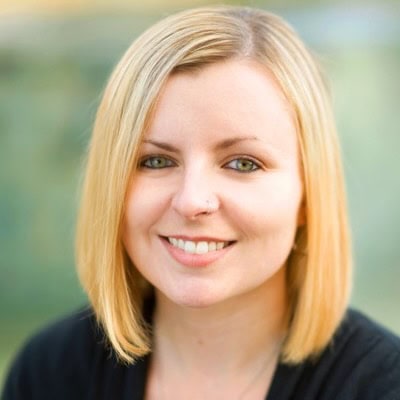SYNOPSIS
A woman answers a Craigslist ad from an amateur dermatologist. What could go wrong?
PLAYWRIGHT’S BIO
Julianne Jigour’s plays have been produced by or developed with Public Assembly, PlayGround, the Antaeus Playwrights Lab, Moving Arts’ MADLab, Santa Clara University, Bombay Theatre Company and Theater Masters. She has received two commissions from Planet Earth Arts, one of which – Bright Shining Sea – received its premiere production with PlayGround in San Francisco, where it was a Theatre Bay Area Awards Recommended Production. Her short plays Beech. Oak. Iris. and Domestic Help were finalists in the 2020 and 2022 Samuel French Off Off Broadway Festival. Julianne has twice received grants from the Alfred P. Sloan Foundation for science-themed TV pilots and has been a finalist for the Steeltown Film Factory competition. She earned her MFA from Carnegie Mellon University, where she received the West Coast Drama Alumni Clan Award for Dramatic Writing. A proud member of the Playwrights Union, Playwrights Think Tank and Dramatists Guild, Julianne resides in Los Angeles.
A BIT ABOUT THE PLAYWRIGHT
When did you start writing plays? If you had a moment where you realized you wanted to write, what was it?
I had massive social anxiety growing up, so as an adolescent, I went to literature, film, music and other arts for the sense of human connection I desired but felt inept at developing with my peers. By 13, I knew I wanted to write. Once I studied playwriting in college with the generous and life-changing teacher Brian Thorstenson, I felt most at home with playwriting. I think this form clicked with me because my tendency to be the quiet observer made me pay obsessive attention to what people said and how they said it. I was interested in the distance between the words people used and what they meant and what they felt, and I was painfully aware of the gap between what I wished to communicate and what I was capable of speaking. For me, the stage has been the perfect place to explore the beauty and limitations of language as we try to connect with one another and give voice to our experience.
How did you come to write your OOB play? Was there a particular inspiration behind its creation? How has it developed?
I developed the play with Public Assembly Theater Company. Dedicated to reinventing community theater in Los Angeles, Public Assembly puts up a one-night, monthly show of short plays centered on an audience-proposed topic. The topic last July was “blister,” and they selected my pitch for float until you burst.
I was interested in exploring a character who must confront the fact that she’s so disconnected from her own desires that she doesn’t know what she wants anymore. I’ve tried to explore this idea before, but since a character who doesn’t know what she wants is kind of inherently undramatic, it can be challenging. Thanks to the Public Assembly team, I think this was my most successful go.
Working with Public Assembly was one of the most fulfilling and rigorous development processes I’ve experienced. You get a ton of super smart, thoughtful feedback over the course of the month, and I learned so much from the talented and generous people I worked with. Shout out to director Raul B. Fernandez; actors Jordan Hull, Brendan Clifford and Arthur Keng; and Public Assembly #34 minds Kap Taylor, Clara Aranovich, AJ Marechal and Lauren Sevigny, who were all integral to the play’s development.
What are five words that describe who you are as a playwright?
Dark, quiet, quirky, whimsical, intimate.
What/who are some of the major influences on your writing?
As a teenager and young adult, I was drawn to the dark, eerie emotional landscape of Southern Gothic literature, and that finds its way into my work. Thematically, Carson McCullers’ fiction (The Heart Is a Lonely Hunter, The Ballad of the Sad Café) will always be a touchstone for me. I also love poetry, and favorite lines and passages (or, in the case of “Meditation at Lagunitas” by Robert Hass, the entire poem) echo in my head, influencing, I’m sure, how my words land on the page.
Social anxiety, which age has only moderately cured, is a big influence, too. I had a lot of practice with imaginary conversations before I started writing plays.
What’s one fact someone would never guess about you?
I didn’t really like reading as a kid. In elementary school, I preferred math to language arts because getting a definitive, correct answer was comforting, and the ambiguity and open-endedness of language arts stressed me out. As the world revealed itself to be more complicated and as I felt more distant from my peers, I gravitated toward literature and art. By high school, math was my least favorite subject, and in college, I took math classes that involved assignments like writing a paper about Hypatia, the “first female mathematician” who was known for throwing her menstrual rag at a man who wouldn’t leave her alone.
What are some of your favorite plays?
Favorite plays include God’s Ear by Jenny Schwartz, The Pillowman by Martin McDonagh, and The Clean House by Sarah Ruhl. I also love the work of Annie Baker, Rebecca Gilman, Lucas Hnath, August Wilson and Tennessee Williams.
Any new projects you’re working on or shameless plugs?
I’m currently developing a new full-length play in the Under Construction writing group at the Road Theatre in North Hollywood. An exploration of how loneliness and isolation affect the mind, the body and the body politic, Skin Hunger will have a staged reading at the Road next year.
And if you’re in LA, you must go to a Public Assembly show! You won’t find a theatre audience in LA having more fun than they do at PA. The house is always packed, the tickets are always pay-what-you-can, and the bar is always open. PA is truly revitalizing theatre out here. I’m such a fan.

